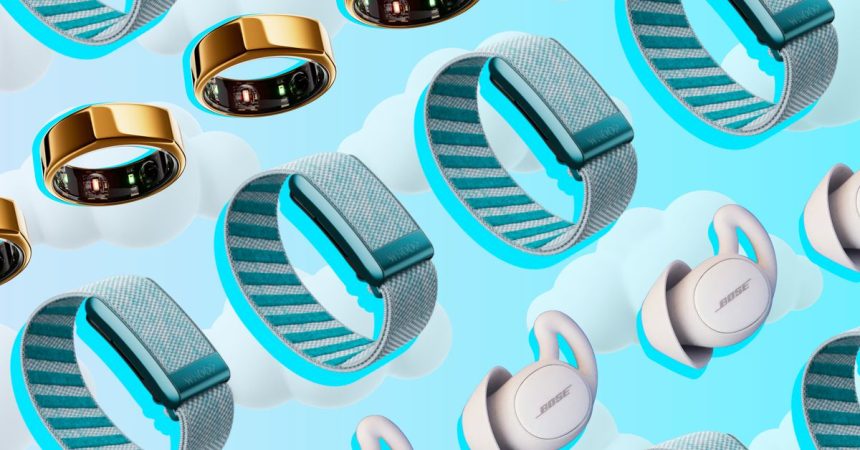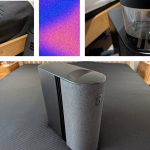Sleep technology has evolved significantly, offering a variety of solutions for different sleep-related challenges. From basic sleep trackers to sophisticated smart beds, choosing the right device depends on individual needs and lifestyle. Considerations include whether you’re looking to improve athletic performance, block out noise, or simply monitor sleep patterns. Evaluating how well a device integrates into daily life is crucial. Dedicated sleep trackers like the Oura Ring and Whoop 4.0 provide in-depth data but may lack broader functionality. Smartwatches, such as the Pixel Watch, Apple Watch, and Samsung Galaxy Watch, offer more versatility with notifications, payments, and other features. However, those who find wearing wrist-based devices uncomfortable at night can explore non-wearable options like the Withings Sleep or Google Nest Hub. For noise masking, Anker’s Soundcore Sleep A20 or the resurrected Ozlo Sleepbuds (formerly Bose Sleepbuds) provide effective solutions.
When selecting sleep tech, key criteria include performance, value, comfort, context, and battery life. A good device excels in its primary function, providing demonstrable value for its cost. Comfort is paramount for sleep, and the device shouldn’t disrupt sleep quality. Data should be presented in a clear and insightful manner, providing actionable information rather than confusing graphs. Finally, the device must have sufficient battery life to last throughout the night, or offer quick charging capabilities for daytime use. It’s important to remember that sleep tech devices are not medical devices. While some have FDA clearance for tracking sleep disturbances, they cannot diagnose conditions like sleep apnea. These devices are tools for identifying potential issues, prompting further investigation with healthcare professionals if needed.
The Oura Ring 4 is a top contender for dedicated sleep tracking. Its multiple sensors provide a comprehensive view of sleep and recovery, offering personalized insights and wellness features. The ring format is more comfortable than wrist-based trackers, and the battery lasts up to a week. However, it comes with a monthly subscription fee. For those seeking a combination of sleep tracking and smartwatch functionality, the Google Pixel Watch is a strong choice. Its integration with Fitbit provides comprehensive sleep data and insights, including sleep stages, comparisons to age and sex groups, and a daily readiness score. Its smartwatch features enhance daily utility, offering notifications, payments, and voice assistant support. Samsung’s Galaxy Watch series, paired with the Galaxy Ring, offers similar benefits for Android users, with a growing suite of sleep-focused features. Apple Watch users can opt for third-party sleep apps to enhance the basic sleep tracking features available on the device.
Athletes looking to optimize recovery and training should consider Whoop 4.0. This tracker focuses on cardiovascular strain and sleep debt, providing detailed insights into how sleep impacts performance. It allows logging various factors affecting sleep and offers flexible wearing options. However, its $30 monthly subscription makes it a premium option best suited for dedicated athletes. Garmin smartwatches also provide robust training features and long battery life, offering a more budget-friendly alternative. For those who prefer non-wearable options, the Withings Sleep is a cost-effective choice. Placed under the mattress, it tracks sleep cycles, heart rate, snoring, and breathing disturbances. The data can be compiled into shareable reports for healthcare professionals. While the price has recently increased, it’s often available on sale.
Temperature regulation is a key concern for many sleepers. The Eight Sleep Pod 4, though expensive, offers a solution with its temperature-controlled mattress cover. It allows individual temperature settings and includes an autopilot function for automatic adjustments. The Ultra version adds a tech base for elevation adjustments and snoring reduction. However, it requires a monthly membership fee. For a more budget-friendly approach to improving sleep routines, the Hatch Restore 2 combines a sunrise lamp, smart alarm clock, and white noise machine. It helps establish consistent sleep-wake cycles with customizable light and sound options. While a subscription unlocks additional content, the core features are available without one.
Finally, for those bothered by noise, sleep earbuds offer an effective solution. Anker’s Soundcore Sleep A20 and the Ozlo Sleepbuds (formerly Bose Sleepbuds) are designed for comfort, allowing for side sleeping without pressure. The Soundcore A20 supports Bluetooth audio, while the Ozlo Sleepbuds offer a curated sound library. The Ozlo Sleepbuds are pricier but offer a more refined experience and plan to add sleep tracking in the future. Choosing the right sleep tech involves balancing features, cost, and personal preferences. By carefully considering individual needs and priorities, you can find the device that best supports your sleep goals and helps you achieve better rest.



